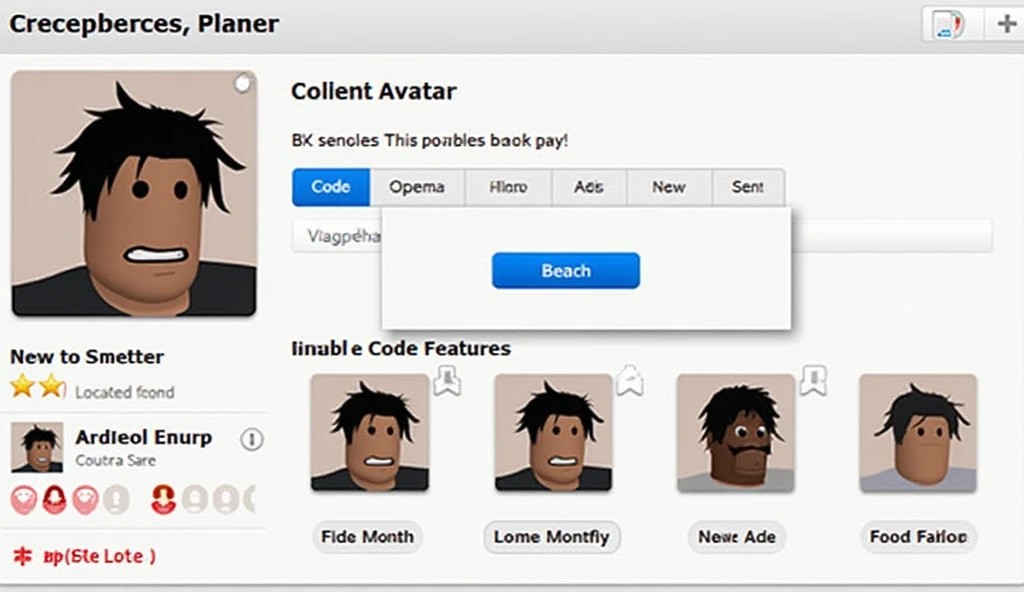Discovering 10desires.org: Your Comprehensive Health Hub
Are you seeking a one-stop destination for all your health needs? Look no further than 10desires.org! But what exactly is 10desires.org, and how does it cater to your wellness journey? Let’s delve into its mission, resources, and community to unveil the treasure trove it offers.
Mission and Vision:

At 10desires.org, our mission is simple yet profound: to empower individuals worldwide to lead healthier, happier lives. We envision a world where accessing reliable health information and resources is seamless, regardless of one’s background or circumstances.
Through our platform, we strive to democratize health knowledge, ensuring that everyone has the tools they need to make informed decisions about their well-being.
Audience and Community:
Whether you’re a health enthusiast, a caregiver, or someone navigating their wellness journey, 10desires.org welcomes you with open arms.
Our diverse community fosters support, understanding, and shared experiences, creating a safe space for everyone to thrive. From seasoned experts to those just beginning their health journey, everyone has a place in our inclusive community.
Types of Health Resources Offered:
From fitness to mental well-being, preventive care to alternative therapies, 10desires.org offers a plethora of resources to cater to your holistic health needs.
Our curated content spans articles, videos, podcasts, interactive tools, and downloadable guides, ensuring you find what you need, when you need it. Whether you’re looking for expert advice on managing a chronic condition or simple tips for improving your daily wellness routine, we’ve got you covered.
Accessibility and Usability:
We believe that everyone deserves access to vital health information. That’s why 10desires.org is designed with accessibility and usability in mind, ensuring a seamless browsing experience for all users, regardless of ability or device.
Our website is optimized for screen readers, keyboard navigation, and other assistive technologies, making it easy for everyone to find the information they need. Additionally, our intuitive interface and user-friendly design ensure that navigating our site is a breeze, whether you’re a tech-savvy millennial or a digital novice.
Expert Contributions:
Our platform is enriched by the expertise of healthcare professionals, wellness coaches, nutritionists, psychologists, and industry experts from around the globe. Their insights, research-backed advice, and evidence-based recommendations empower you to make informed decisions about your health and well-being.
Whether you’re looking for the latest medical breakthroughs or practical tips for improving your mental resilience, our expert contributors have you covered.
Also read: Ssis 816 – The Infinite Guides and Advantages In 2024!
Fitness and Exercise Tips:
Looking to kickstart your fitness journey or take it to the next level? Explore our collection of fitness tips, workout routines, and expert advice to achieve your goals, one step at a time.
Whether you’re a seasoned athlete or a fitness newbie, our resources cover everything from strength training and cardio workouts to yoga and Pilates. Plus, our exercise videos and tutorials make it easy to follow along at home or in the gym, so you can sweat it out on your own schedule.
Nutritional Guidance:
Nourish your body and mind with our comprehensive nutritional guidance. From balanced meal plans to dietary tips tailored to your needs, we’re here to support you in making healthier choices every day. Our nutrition articles cover a wide range of topics, including meal prep, mindful eating, weight management, food allergies, and special diets.
Plus, our recipe collection features delicious and nutritious dishes for every palate, from quick and easy weeknight dinners to gourmet feasts for special occasions.
Preventive Care:
Prevention is the cornerstone of good health. Explore actionable tips and strategies to safeguard your well-being and stay ahead of potential health challenges. Our preventive care resources cover everything from routine screenings and vaccinations to healthy lifestyle habits and environmental factors that can impact your health.
Whether you’re looking to prevent chronic diseases like diabetes and heart disease or simply stay on top of your annual check-ups, we’ve got the information you need to prioritize prevention.
Importance of Mental Well-being:
Your mental health matters. Explore resources dedicated to nurturing your emotional well-being, managing stress, and fostering resilience in the face of life’s challenges. Our mental health articles cover a wide range of topics, including anxiety, depression, mindfulness, self-care, and coping strategies.
Whether you’re struggling with your mental health or simply looking to boost your overall well-being, our resources can help you cultivate a healthier mindset and navigate life’s ups and downs with grace and resilience.
Resources for Stress Management:
In today’s fast-paced world, stress management is essential. Explore our toolkit of relaxation techniques, mindfulness practices, and stress-busting strategies to reclaim your peace of mind.
Our stress management resources cover everything from breathing exercises and meditation techniques to time management tips and lifestyle changes that can help you reduce stress and improve your quality of life. Whether you’re feeling overwhelmed by work, relationships, or other life challenges, our resources can help you find calm amidst the chaos and regain a sense of balance and control.
Therapy and Counseling Options:

Sometimes, we all need a little extra support. Explore therapy and counseling options catered to your needs, whether you’re seeking professional guidance or peer support. Our therapy and counseling resources cover a wide range of modalities, including cognitive-behavioral therapy (CBT), mindfulness-based therapy, dialectical behavior therapy (DBT), and more. Whether you’re dealing with anxiety, depression, trauma, or relationship issues, our resources can help you find the support you need to heal, grow, and thrive.
Integrative Health Practices:
Embrace a holistic approach to health with our collection of integrative health practices. From acupuncture to meditation, discover complementary therapies to enhance your well-being. Our integrative health resources cover a wide range of modalities, including traditional Chinese medicine, Ayurveda, naturopathy, and energy healing. Whether you’re looking to address physical pain, emotional distress, or spiritual stagnation, our resources can help you tap into your body’s innate healing wisdom and restore balance and harmony to your life.
Mind-Body Connection:
Unlock the power of the mind-body connection with our resources on holistic healing and mind-body practices. Learn how your thoughts, emotions, and physical health are interconnected, and discover practical techniques for harnessing this connection to promote healing and wellness.
Our mind-body resources cover a wide range of practices, including mindfulness meditation, breathwork, guided imagery, and biofeedback. Whether you’re dealing with chronic pain, stress-related symptoms, or simply looking to optimize your health and well-being, our resources can help you tap into the healing power of your mind-body connection and unleash your body’s natural ability to heal.
Alternative Therapies:
Explore alternative therapies and healing modalities to complement conventional medicine. From aromatherapy to herbal remedies, discover natural solutions for optimal health. Our alternative therapy resources cover a wide range of modalities, including acupuncture, chiropractic care, massage therapy, and more.
Whether you’re dealing with chronic pain, digestive issues, or autoimmune conditions, our resources can help you explore safe, effective, and evidence-based alternatives to conventional treatments. Plus, our expert contributors provide practical tips and guidance to help you navigate the world of alternative medicine and make informed decisions about your health and well-being.
Healthy Lifestyle Habits:
Embarking on a journey towards healthier living involves more than just sporadic efforts; it requires the cultivation of sustainable lifestyle habits. These habits encompass various aspects of daily life, from dietary choices and physical activity to stress management and self-care routines. By prioritizing these habits, individuals can significantly enhance their overall well-being and longevity.
Work-Life Balance:
Maintaining a healthy work-life balance is crucial for preventing burnout and preserving overall well-being. It involves finding strategies to prioritize self-care, set boundaries, and create harmony between professional responsibilities and personal life.
Strategies may include time management techniques, setting clear boundaries between work and personal time, delegating tasks when possible, and practicing self-compassion. Work-life balance is essential for reducing stress, improving productivity, and fostering satisfaction in both professional and personal domains.
Sleep Hygiene:
Quality sleep is vital for physical health, mental well-being, and overall vitality. Sleep hygiene refers to the habits and practices that promote a restful and rejuvenating sleep experience.
This includes maintaining a consistent sleep schedule, creating a conducive sleep environment (such as a dark, quiet, and comfortable bedroom), limiting exposure to screens before bedtime, avoiding stimulants like caffeine and nicotine close to bedtime, and practicing relaxation techniques to unwind before sleep. Good sleep hygiene can lead to improved mood, enhanced cognitive function, and better overall health outcomes.
Also read: Abraham Quiros Villalba – A Journey of Vision and Impact In 2024!
Information on Chronic Illnesses:
Living with a chronic illness presents unique challenges that require ongoing management and support. Access to comprehensive information on various chronic conditions is essential for understanding symptoms, treatment options, and self-management strategies.
This information empowers individuals to make informed decisions about their health, collaborate effectively with healthcare providers, and navigate their health journey with confidence. Resources may include reputable websites, support groups, educational materials, and healthcare professionals specializing in specific chronic conditions.
Coping Strategies:
Life’s challenges, whether personal, professional, or health-related, can take a toll on mental and emotional well-being. Coping strategies refer to the adaptive mechanisms individuals use to manage stress, cope with adversity, and maintain psychological resilience.
Effective coping strategies may include mindfulness practices, relaxation techniques, journaling, seeking social support, engaging in enjoyable activities, and reframing negative thoughts. Developing a repertoire of coping strategies equips individuals with the resilience needed to navigate life’s ups and downs with grace and strength.
Support Groups:
Connecting with others who share similar experiences can provide invaluable support, validation, and encouragement. Support groups, whether in-person or online, offer a safe space for individuals to share their thoughts, feelings, and challenges related to specific health concerns.
These groups foster a sense of solidarity, empathy, and understanding among members, who can offer practical advice, emotional support, and a listening ear. Support groups may be facilitated by healthcare professionals or peer-led, and they can address a wide range of health topics, from chronic illnesses to mental health conditions to caregiving responsibilities.
Specific Health Issues for Women:
Women’s health encompasses a range of issues unique to their biology and life experiences. This includes reproductive health concerns such as menstruation, pregnancy, and menopause, as well as conditions like polycystic ovary syndrome (PCOS), endometriosis, and breast cancer.
Mental health concerns, including postpartum depression and anxiety, are also significant. Additionally, women may face disparities in healthcare access and treatment, making it crucial to address these issues comprehensively.
Reproductive Health:
Reproductive health focuses on the well-being of the reproductive system throughout a person’s life. This includes access to contraception, family planning services, and preconception care.
During pregnancy, prenatal care becomes essential to monitor the health of both the mother and the developing fetus. Postpartum care is equally important, addressing physical and emotional changes after childbirth. For individuals experiencing infertility, reproductive health services offer support and treatment options.
Menopause and Aging:
Menopause marks the end of a woman’s reproductive years and brings about hormonal changes that can impact physical and emotional health. Symptoms such as hot flashes, mood swings, and changes in bone density are common during this transition.
Managing menopausal symptoms effectively can improve quality of life and reduce the risk of long-term health complications. Additionally, aging brings its own set of challenges, including increased risk of chronic diseases and changes in mobility and cognition.
Health Concerns Specific to Men:

Men face unique health challenges, including a higher risk of certain conditions such as heart disease, prostate cancer, and erectile dysfunction. Prostate health becomes a significant concern as men age, with conditions like benign prostatic hyperplasia (BPH) and prostate cancer requiring attention.
Mental health is also a crucial aspect of men’s well-being, with stigma often hindering help-seeking behaviors. Addressing men’s health comprehensively involves promoting regular screenings, healthy lifestyle habits, and open communication about health concerns.
Prostate Health:
The prostate gland plays a vital role in male reproductive health, but it is susceptible to various conditions, including inflammation, enlargement (BPH), and cancer.
Prostate cancer is one of the most common cancers among men, highlighting the importance of regular screenings and early detection. While not all prostate conditions are preventable, adopting a healthy lifestyle, including a balanced diet and regular exercise, may help reduce the risk of prostate problems.
Fitness and Nutrition:
Maintaining a healthy lifestyle through regular exercise and proper nutrition is essential for overall well-being. Exercise offers numerous benefits, including improved cardiovascular health, stronger muscles and bones, and enhanced mood.
Incorporating a variety of physical activities, such as cardio, strength training, and flexibility exercises, is key to a well-rounded fitness routine. Similarly, nutrition plays a crucial role in supporting physical health, providing essential nutrients for energy, growth, and repair. Emphasizing whole foods, fruits, vegetables, lean proteins, and healthy fats can help individuals achieve and maintain optimal health.
Pediatric Care Tips:
Pediatric care encompasses healthcare services tailored to infants, children, and adolescents. Providing comprehensive care involves monitoring growth and development, administering vaccinations, and addressing acute and chronic health conditions.
Educating parents and caregivers about child safety, nutrition, and developmentally appropriate activities is essential for promoting optimal health outcomes. Pediatricians play a central role in coordinating care and addressing the unique needs of children at different stages of development.
Nutrition for Kids:
Proper nutrition is critical for supporting growth and development in children. Meeting nutritional needs through a balanced diet ensures that children receive essential vitamins, minerals, and macronutrients necessary for overall health.
Encouraging healthy eating habits from a young age can help establish lifelong patterns of healthy eating. Emphasizing the importance of fruits, vegetables, whole grains, and lean proteins, while limiting sugary drinks and processed foods, promotes optimal nutrition and reduces the risk of childhood obesity and related health problems.
Common Childhood Illnesses:
Children are susceptible to a variety of illnesses, ranging from common colds and flu to more serious conditions such as asthma and allergies. Understanding the signs and symptoms of common childhood illnesses is essential for prompt diagnosis and treatment.
Preventive measures, including regular handwashing, vaccinations, and maintaining a healthy lifestyle, can help reduce the risk of illness. Pediatricians play a crucial role in providing medical care, guidance, and support to families navigating childhood illnesses.
Aging Healthfully:
Aging healthfully involves adopting lifestyle habits and healthcare practices that promote physical, mental, and emotional well-being as individuals grow older.
This includes engaging in regular physical activity, maintaining a balanced diet, staying socially connected, and prioritizing preventive healthcare measures such as screenings and vaccinations. Managing chronic conditions effectively and adapting to changes in mobility, cognition, and independence are also important aspects of aging well.
Mobility and Independence:
Preserving mobility and independence is a key priority for aging adults. This involves maintaining strength, flexibility, and balance through regular exercise and physical activity.
Access to mobility aids and assistive devices can support independent living by addressing
challenges related to mobility limitations. Home modifications, such as installing grab bars and ramps, can enhance safety and accessibility, allowing individuals to age in place comfortably.
Also read: The Grand Duke Is Mine Spoilers – Embarking On An Eternal Love Story In 2024!
Cognitive Health:
Cognitive health refers to the ability to think, learn, and remember information clearly and effectively. As individuals age, cognitive function may decline, leading to challenges such as memory loss and difficulty with decision-making.
However, there are steps individuals can take to preserve cognitive health, including engaging in mentally stimulating activities, staying socially active, managing chronic conditions that affect the brain, and adopting a healthy lifestyle that supports brain health.
Forums and Discussions:
Online forums and discussion platforms provide spaces for individuals to connect, share experiences, and seek advice on a wide range of health-related topics. These platforms often feature communities dedicated to specific health conditions or concerns, allowing individuals to find support and information from others who have shared experiences.
Moderated forums ensure a safe and supportive environment where members can ask questions, share resources, and engage in meaningful discussions about their health and wellness journey.
Webinars and Workshops:
Webinars and workshops offer opportunities for education, skill-building, and interactive learning on various health topics. Led by experts in the field, these online sessions cover a range of subjects, from disease prevention and management to lifestyle interventions and self-care practices.
Participants can access valuable information, ask questions, and engage with presenters and fellow attendees in real-time, making webinars and workshops valuable tools for health promotion and education.
Success Stories:
Success stories highlight individuals’ journeys of overcoming health challenges, achieving personal goals, and reclaiming their well-being. These stories inspire and motivate others facing similar struggles, demonstrating that positive change is possible with dedication, perseverance, and support.
Success stories may feature individuals who have improved their physical health through lifestyle modifications, conquered mental health obstacles, or overcome significant health setbacks to live fulfilling lives.
Health Apps and Tools:
Health apps and digital tools have revolutionized the way individuals manage their health and wellness. These applications offer a wide range of functionalities, including:
- Activity Tracking: Apps that monitor physical activity levels, count steps, and track workouts, encouraging users to stay active and meet their fitness goals.
- Nutrition Tracking: Tools for logging food intake, tracking calories, and monitoring nutritional content to promote healthy eating habits.
- Medication Management: Apps that help users organize medication schedules, set reminders for doses, and track medication adherence.
- Symptom Tracking: Platforms for recording symptoms, monitoring changes in health status, and providing data for discussions with healthcare providers.
- Mental Health Support: Apps offering meditation exercises, mood tracking, and cognitive behavioral therapy (CBT) techniques to support mental well-being.
- Chronic Disease Management: Tools designed to assist individuals with managing chronic conditions such as diabetes, hypertension, and asthma through tracking vital signs and providing educational resources.
- Sleep Tracking: Applications that monitor sleep patterns, analyze sleep quality, and provide insights for improving sleep hygiene.
Health apps and tools empower users to take an active role in their healthcare, providing valuable data and resources for promoting overall well-being.
Telehealth Services:
Telehealth services utilize technology to deliver healthcare remotely, offering convenience, accessibility, and flexibility for patients and providers. Key components of telehealth services include:
- Virtual Consultations: Remote appointments with healthcare providers via video conferencing or phone calls, allowing patients to receive medical advice, prescriptions, and referrals without visiting a physical clinic.
- Remote Monitoring: Devices and sensors that track vital signs, such as blood pressure, heart rate, and blood glucose levels, transmitting data to healthcare professionals for ongoing monitoring and intervention.
- Telemedicine Platforms: Online platforms that connect patients with healthcare providers for diagnosis, treatment, and follow-up care, covering a wide range of medical specialties and conditions.
- Mental Health Services: Virtual therapy sessions and counseling appointments for individuals seeking support for mental health concerns, offering confidential and accessible care from licensed professionals.
- Remote Patient Education: Webinars, educational videos, and digital resources that provide information on health topics, treatment options, and self-care strategies, empowering patients to make informed decisions about their health.
Telehealth services have become increasingly popular, particularly in situations where in-person visits may be challenging or impractical, such as during a public health crisis or for individuals with mobility limitations.
Wearable Technology:

Wearable technology refers to electronic devices that can be worn on the body, typically incorporating sensors and connectivity features to track health metrics and provide real-time feedback. Common types of wearable technology include:
- Fitness Trackers: Devices worn on the wrist or clipped to clothing that monitor physical activity, heart rate, and sleep patterns, providing insights into overall fitness and wellness.
- Smartwatches: Multi-functional watches with features such as activity tracking, heart rate monitoring, GPS navigation, and notifications for calls, messages, and calendar alerts.
- Health Monitoring Devices: Wearable devices designed for specific health purposes, such as continuous glucose monitors for diabetes management, ECG monitors for heart health, and sleep trackers for monitoring sleep quality.
- Smart Clothing: Garments embedded with sensors or conductive fabrics that can monitor biometric data, track movement, and provide feedback on posture and activity levels.
- Augmented Reality (AR) Glasses: Wearable glasses that overlay digital information onto the user’s field of view, offering immersive experiences for fitness training, navigation, and healthcare applications.
Wearable technology enables individuals to track their health and fitness in real time, facilitating behavior change, goal setting, and personalized interventions for improved well-being.
FAQ’s
1. What is 10Desires.org?
10Desires.org is a comprehensive health hub dedicated to empowering individuals worldwide to lead healthier, happier lives.
2. What types of resources does 10Desires.org offer?
10Desires.org offers a wide range of resources, including articles, videos, podcasts, interactive tools, and downloadable guides covering various aspects of health and wellness.
3. Who can benefit from 10Desires.org?
Whether you’re a health enthusiast, caregiver, or someone navigating your wellness journey, 10Desires.org welcomes individuals from all backgrounds and experiences.
4. How does 10Desires.org ensure accessibility?
10Desires.org is designed with accessibility in mind, offering features such as optimization for screen readers, keyboard navigation, and intuitive user interface for a seamless browsing experience.
5. What expertise enriches 10Desires.org?
10Desires.org is enriched by contributions from healthcare professionals, wellness coaches, nutritionists, psychologists, and industry experts, providing evidence-based advice and recommendations for holistic well-being.
Conclusion
Health apps, telehealth services, and wearable technology empower individuals to control their health. They offer accessibility, personalized support, and remote medical care, fostering informed decision-making. As technology advances, integrating these tools into daily life can transform healthcare, enhancing outcomes and promoting proactive self-care for healthier, connected lives.
Related Post:





